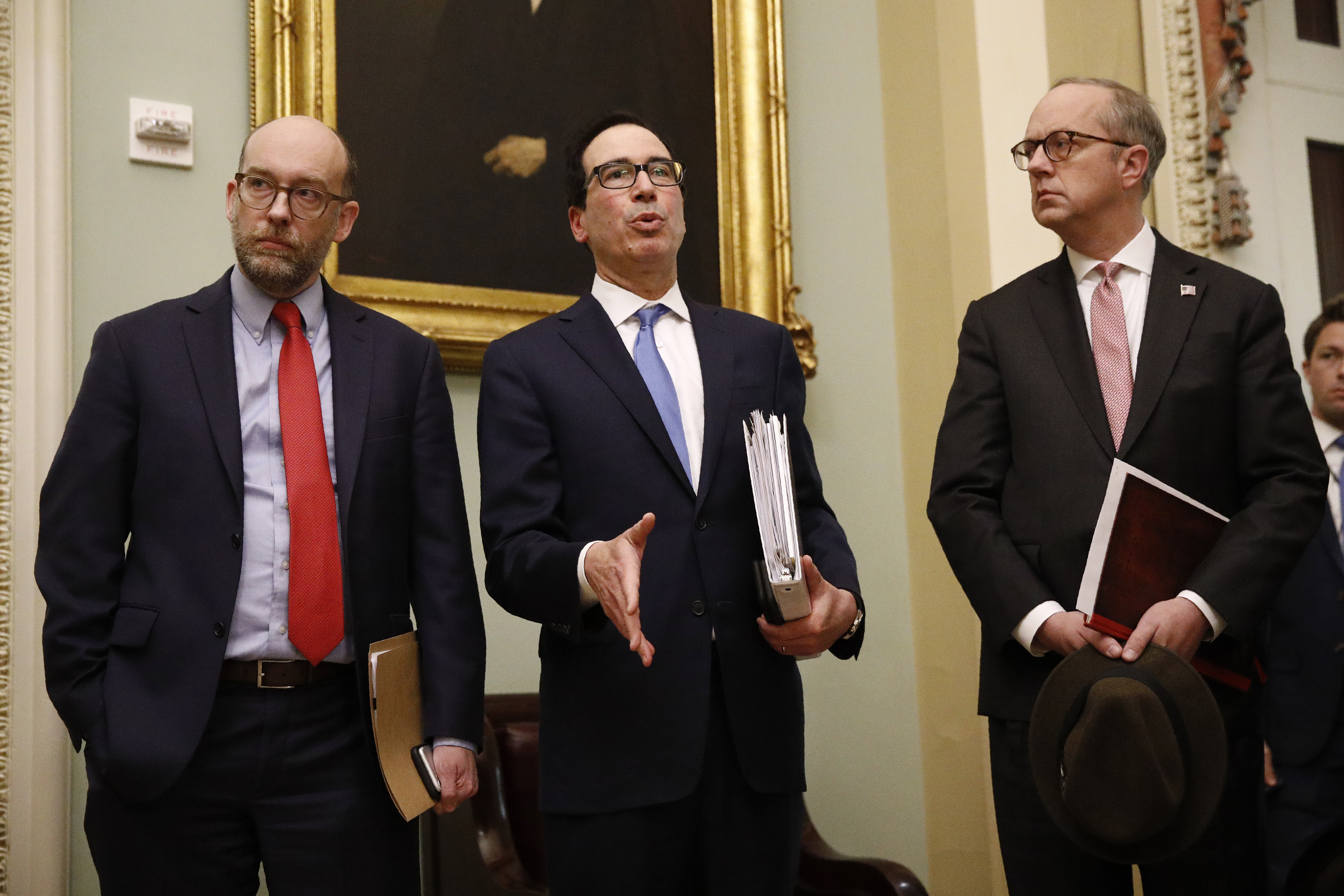Senators and senior Trump administration officials were scrambling on Monday to strike a deal on a nearly $2 trillion economic rescue measure to respond to the coronavirus pandemic, after Democrats blocked action on the package on Sunday, demanding stronger protections for workers and restrictions for bailed-out businesses.
The failed vote on Sunday shook markets around the globe and threatened to derail bipartisan talks that had yielded substantial compromises over the outlines of the measure, which is emerging as the largest economic stimulus measure in modern history.
However, on Monday Senate Democrats again blocked action on the package as talks continued with the Trump administration to resolve differences.
Tempers flared in the Senate as senators and senior Trump administration officials scrambled to strike a deal on the measure to respond to the coronavirus pandemic, with Democrats blocking action on the package until they could secure stronger protections for workers and restrictions for bailed-out businesses.
At the heart of the impasse is a $425 billion fund created by the bill that the Federal Reserve could leverage for loans to assist broad groups of distressed companies, and an additional $75 billion it would provide for industry-specific loans.
Democrats have raised concerns that the funds do not have rules for transparency or enough guardrails to make sure companies do not use the funds to enrich themselves or take government money and lay off workers. They also argue the measure would give Mnuchin too much discretion to decide which companies receive the funds, calling the proposal a “slush fund” for the administration.
As the legislation is currently written, Mnuchin would not have to disclose the recipients until six months after the loans were disbursed. Some Democrats also objected to loopholes in the legislation they said could allow Trump’s real estate empire to take advantage of the federal aid.
“We’re not here to create a slush fund for Donald Trump and his family or a slush fund for the treasury department to be able to hand out to their friends,” Senator Elizabeth Warren, Democrat of Massachusetts, told reporters on Sunday.
“We’re here to help workers.”
Republicans and Democrats have already struck a number of major compromises on the package, including tentative agreement on sending $1,200 government payments to those earning up to $75,000 a year, with an additional $500 per child, with smaller checks for those earning more and an upper eligibility limit of $99,000 in income.
But Democrats are pushing to strengthen worker protections, arguing that the draft legislation fails to prevent layoffs, and enforce heavier restrictions on executive compensation and companies’ ability to buy back stock.
Led by Schumer, they are also calling for an additional hundreds of billions of dollars to support hospitals struggling to care for the thousands infected by the virus and more funds to send to individual states to help them combat the outbreak and the economic turmoil of having to close businesses and cities.
Democrats are also pressing to extend jobless benefits in the legislation for an additional month. Republicans have already agreed to a large expansion of the unemployment insurance programme.










